As pro-Palestine protests mount nationwide, so do arrests at N.Y. universities
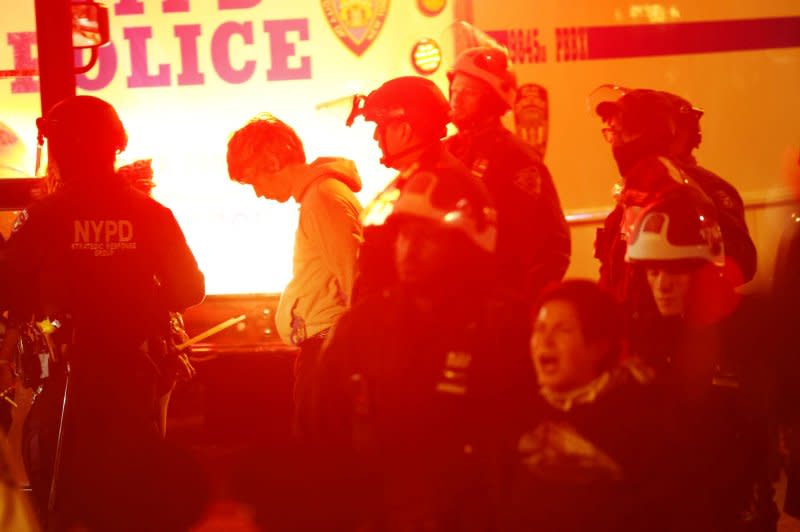
May 1 (UPI) -- As pro-Palestinian protests continue to affect college campuses throughout the United States, New York Mayor Eric Adams on Wednesday said nearly 300 people were arrested the night before at Columbia University and City University of New York.
"While those who broke into the building did include students, they were led by people who were not affiliated with the university," Adams said at a Wednesday morning press conference with the city's police commissioner.
On Tuesday, hundreds of New York Police Department officers wearing riot gear began to assemble on Columbia University's campus at about 9 p.m. EDT. They later swarmed and entered Hamilton Hall, where they cleared the building and arrested dozens of protesters inside and outside.
The mayor blamed "outside agitators" for the escalation, stating his belief that "there is a movement to radicalize young people, and I'm not going to wait until it's done and all of a sudden acknowledge the existence of it."
Columbia University announced that all remaining classes and final exams on campus will be held virtually. They said they believe non-affiliated actors took part in forcing the situation's escalation.
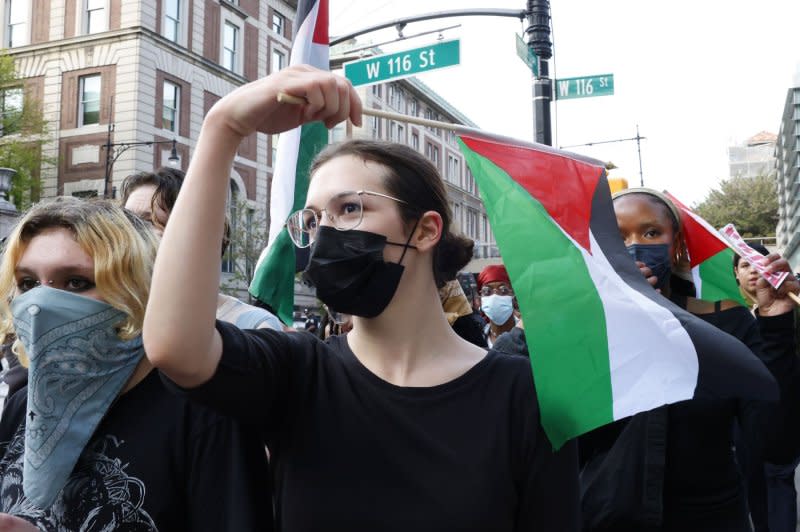
By Wednesday, Columbia University's President Nemat "Minouche" Shafik, who had requested for law enforcement to intervene, said she was "sorry we reached this point."
"Over the last few months, we have been patient in tolerating unauthorized demonstrations, including the encampment," Shafik, who has held the job since July 2023, wrote in a letter. She added that university officials had "spent eight days engaging over long hours in serious dialogue in good faith with protest representatives" to not avail.
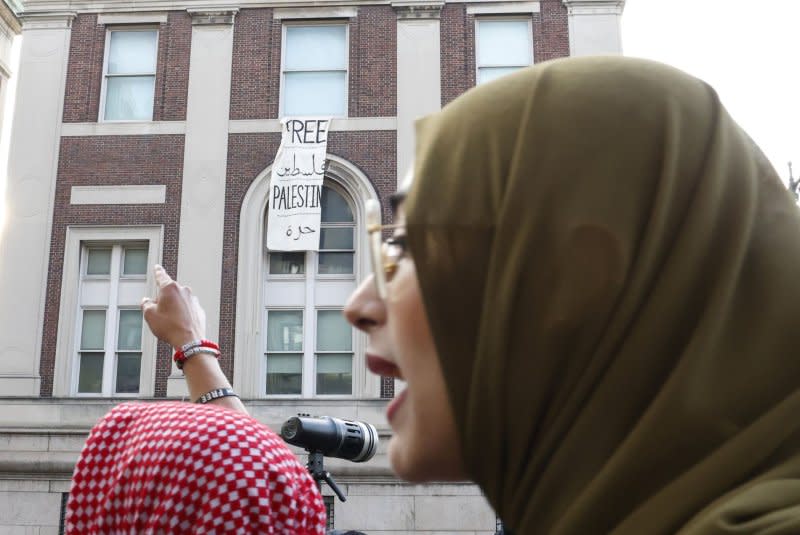
Hamilton Hall had been cleared and two lawn encampments dismantled at the request of the university administration. Dozens of protesters were taken into custody, zip tied and escorted outside to NYPD buses. The rest of Columbia's campus was put on lockdown as students were ordered to shelter in place.
It is unclear for now just how many of the 282 arrested Tuesday night were actually students of the 109 taken into custody on the Columbia campus and 173 at CUNY.
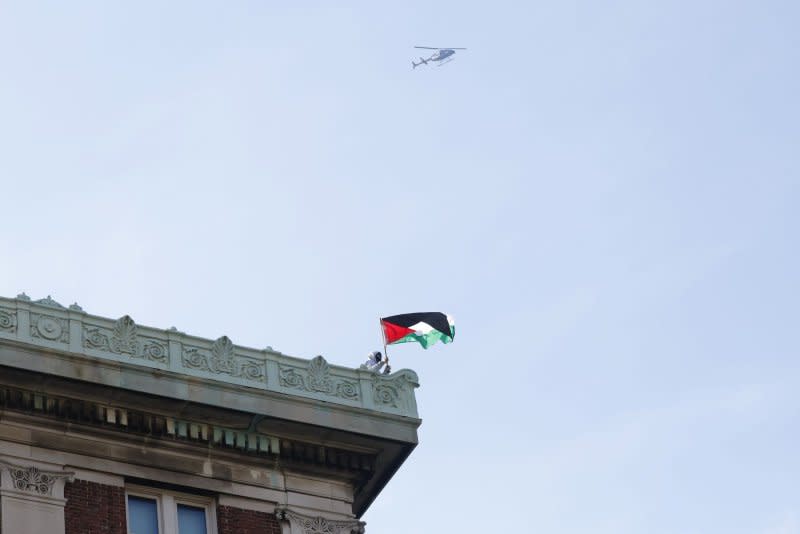
"This is a global problem that young people are being influenced by those who are professionals at radicalizing our children," said Adams, who was a police officer for 22 years prior to entering politics.
While the police officers refrained from using tear gas and said there were no injuries, they reportedly were forced to use flash-bang grenades to get past doors barricaded with chairs, tables and vending machines inside the building, according to officials.
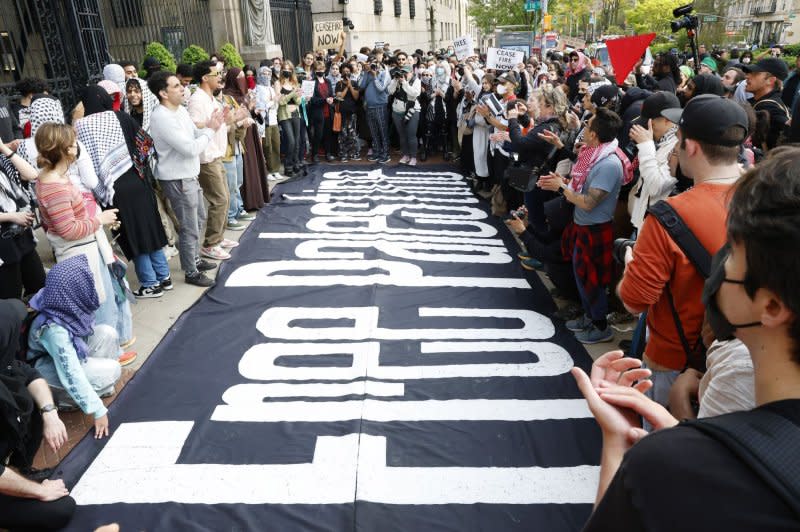
"But students and outside activists breaking Hamilton Hall doors, mistreating our Public Safety officers and maintenance staff, and damaging property are acts of destruction, not political speech," the university president wrote in her Wednesday letter.
The NYPD is expected to maintain a presence on college campus' ahead of Columbia's upcoming May 15 commencement ceremonies. But reactions among the city's college students were seemingly mixed.
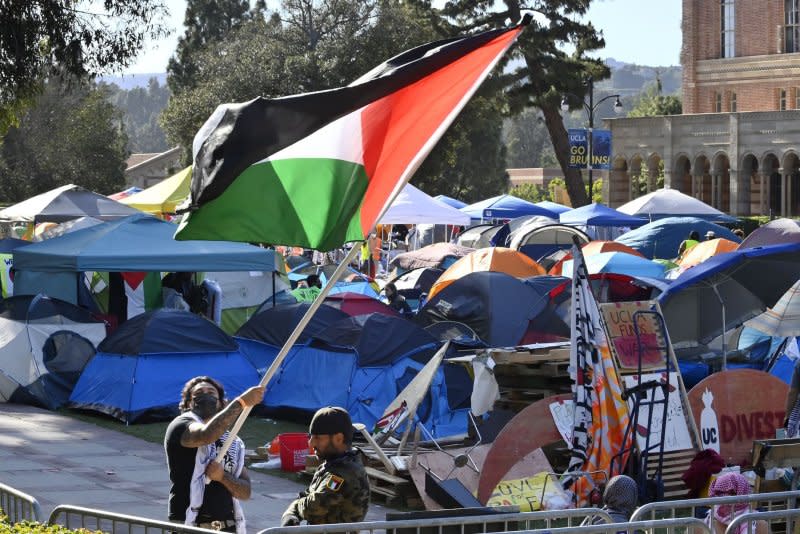
"I'm horrified at what our university has done. It's not OK under any circumstance to send that many police onto campus," Columbia senior Masha Sokolova told CBS News.
Another Columbia University student told MSNBC Wednesday morning that he saw law enforcement tearing down things including flags and using expletives.
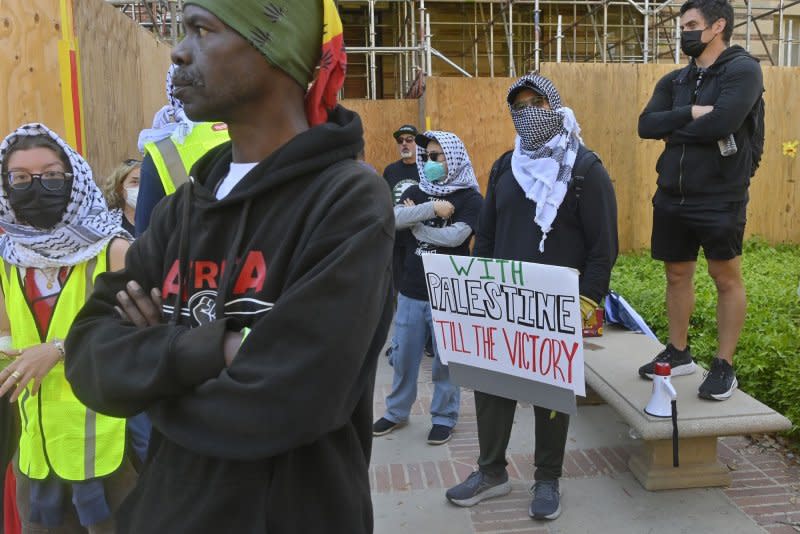
"It got violent," said Edgar Gomez, a student. "I've never seen this tension at all," he said.
"If they had used adequate police force to stop a second encampment from being built," said Lily Zuckerman, a sophomore at Barnard College, "then we wouldn't even be here today. So I think it's good to take whatever preventative measure needs to be taken."
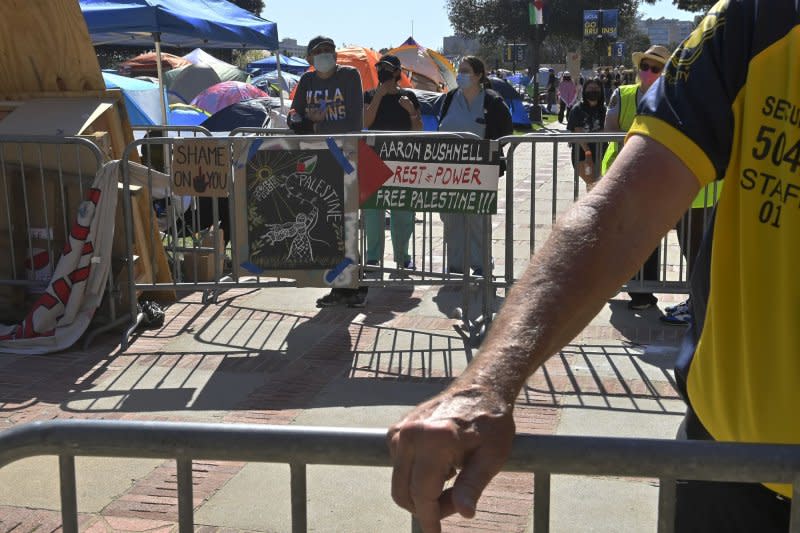
All classes were canceled Wednesday at the University of California, Los Angeles, as students were told to "avoid the Royce Quad area." A clash between protesters at UCLA followed just before 11 p.m. Tuesday night when approximately 50 counter-protesters showed up to the pro-Palestinian encampment and tried to knock down placed barriers. There was one reported injury.
The president of California's college system -- which has over 280,000 students -- in a letter obtained by the LA Times called for an independent review of UCLA's handling of the situation, saying there was "sufficient confusion" for there to be an investigation.
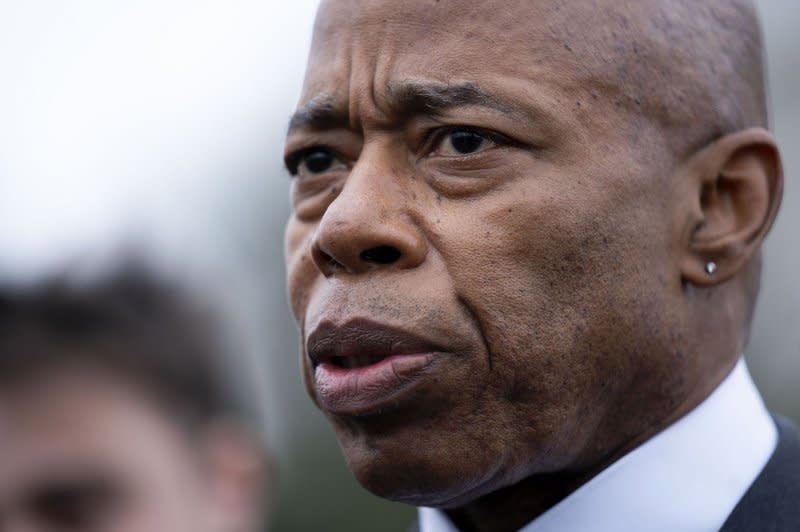
"I believe such a review can address many of my immediate questions but also help guide us for possible future events," UC President Michael Drake wrote in a letter to all 26 members of the University of California's Board of Regents.
On Monday, UCLA was forced to step-up security around an encampment of 50 tents on Royce Quad after "physical altercations" broke out between pro-Israel demonstrators and pro-Palestinian protesters.
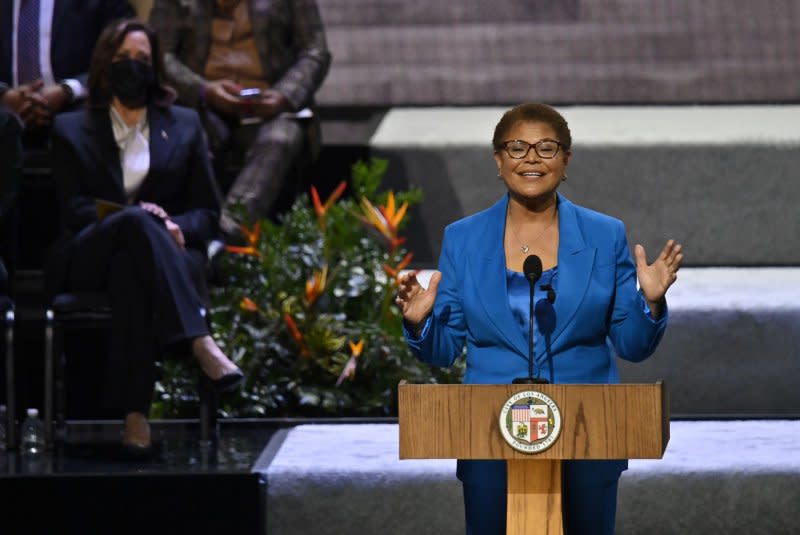
On Tuesday, the university had informed pro-Palestinian protesters that their encampment was "unlawful" and violated school policies as officials likewise took steps to disband the demonstrations.
A spokesman for Los Angeles Mayor Karen Bass in the early morning noted how she had "spoken to Chancellor Block and Chief Choi" and that "LAPD is responding immediately to Chancellor Block's request for support on campus."
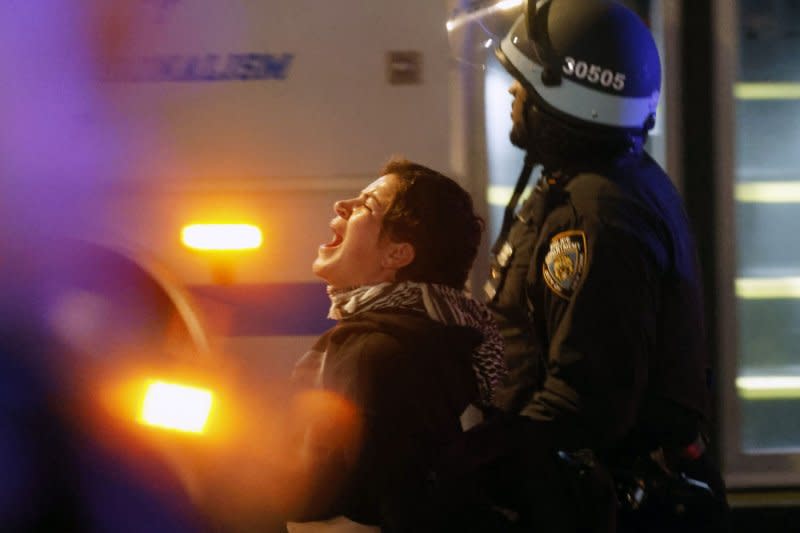
That was followed later by a Los Angeles Police Department post on X how at the request of UCLA and because of "multiple acts of violence within the large encampment on their campus," the police department will be assisting other law enforcement agencies "to restore order and maintain public safety" on UCLA's campus.
Bass called the unfolding violence at UCLA "absolutely abhorrent and inexcusable" as she said law enforcement had arrived on campus before 5 a.m. local time.
Scores of pro-Palestine protests and encampments on college or university campuses have spread across the United States in recent weeks, leading to the arrests of hundreds and an increasing administrative nightmare for college officials.
On Sunday, Massachusetts' Tufts University said a pro-Palestinian encampment erected on the campus "must end," calling on protesters to remove it "peacefully and voluntarily."
At nearby Yale University in mid-April, nearly 50 demonstrators were arrested at after refusing to leave the school's Beinecke Plaza during a mass protest calling for military weapons divestment.
On Tuesday at neighboring Brown University in Rhode Island, officials said they had reached an agreement with pro-Palestinian protesters to end their encampment.
"When you've had genocide carry on for this long, people are just not going to be able to live side by side with two governments in the way that it's been suggested," a pro-Palestinian demonstrator at UCLA, Luke Veltz, was quoted on Wednesday.
"And I think that a free Palestine is the only way forward," he told KTLA in Calif.
A UCLA professor of Jewish history said what had happened "was the darkest day in my 32 years at UCLA." It was a "complete and total systems failure at the university, city and state levels," David Myers, a UCLA professor, had told the LA Times.
There are similar issues currently ongoing at other college campuses across the country, such as at Portland State University in Oregon and University of Wisconsin-Madison.


